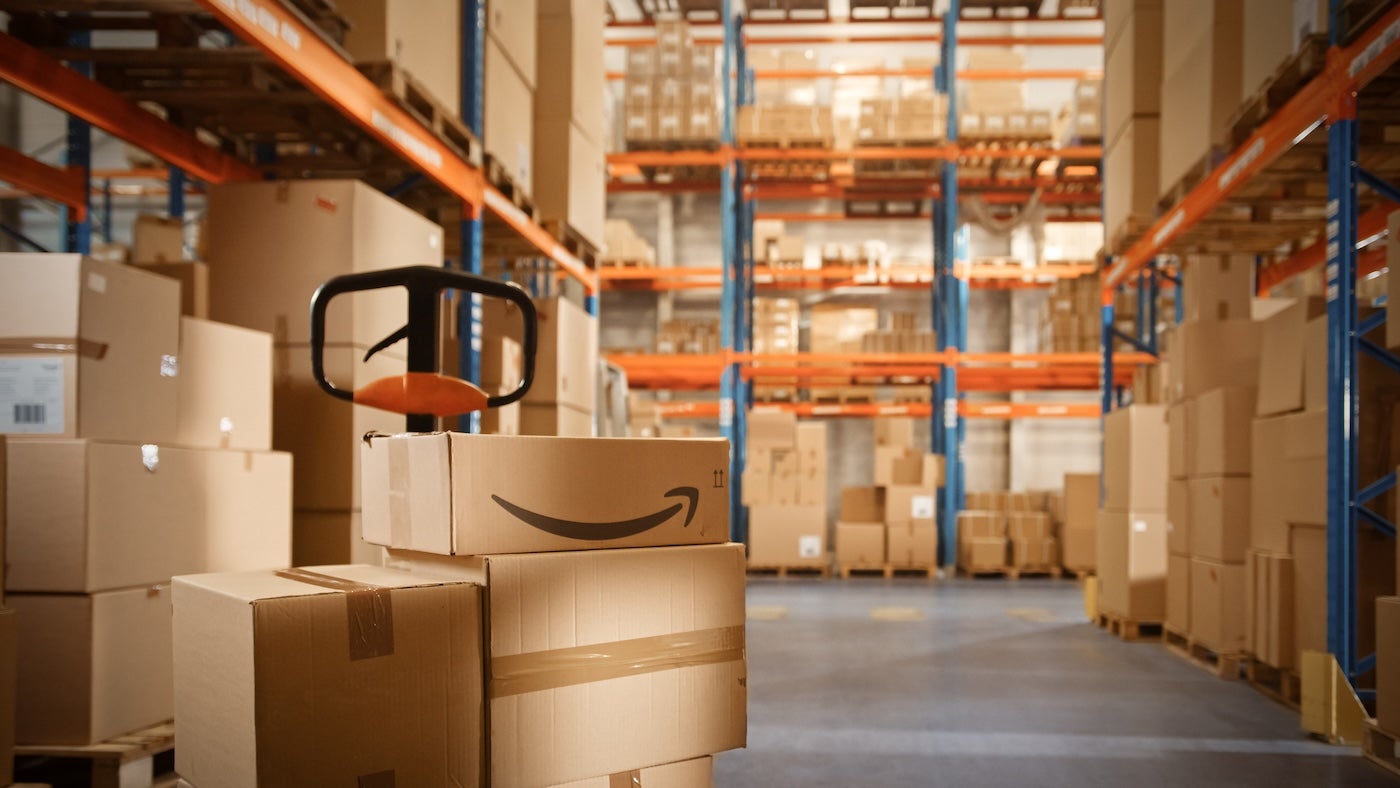
The U.K. government has completed its investigation into the partnership between Amazon and Anthropic and found it does not create a “relevant merger situation” that shields it from competition.
Although it grants Amazon certain rights and involves collaboration between the companies, the merger does meet the criteria for a relevant merger under U.K. law, according to the Competition and Markets Authority.
Specifically, the partnership does not meet the turnover threshold for a relevant merger situation, as Anthropic’s turnover is below £70 million, according to a summary of the decision. The two companies together also do not control 25% or more of any market in the country, so do not pose a significant threat to competition.
As a result, CMA decided that Amazon does not have a material influence over Anthropic and not to refer the partnership for further investigation.
In March, Amazon concluded its $4 billion (£3.16 billion) investment in Anthropic, the company behind the Claude LLM family, some of the only viable competitors to OpenAI’s ChatGPT and Google’s Gemini. It was founded by former OpenAI employees, including siblings Daniela and Dario Amodei, who were both execs.
In return for the investment, Anthropic committed to using Amazon Web Services as its primary cloud provider for “mission critical workloads, including safety research and future foundation model development.” It also agreed to use Amazon’s Trainium and Inferentia chips to build, train, and deploy its models and host them on the AI app development platform Amazon Bedrock.
However, the Competition and Markets Authority suspected that this partnership could have resulted in a “substantial lessening of competition” within the U.K. tech markets, so opened an investigation.
SEE: UK Regulator Checking Microsoft and Inflection AI Hires for ‘Merger Situation’
An Anthropic spokesperson told TechRepublic in an emailed statement: “We welcome the CMA’s decision to conclude their review of Amazon’s investment without further action.
“As we’ve made clear, Anthropic is an independent company and our strategic partnerships and investor relationships do not diminish our corporate governance independence or our freedom to partner with others.”
TechRepublic has reached out to Amazon for comment.
When the investigation was opened, an Amazon spokesperson told TechRepublic in an emailed statement, “We’re disappointed that the UK’s Competition and Markets Authority (CMA) has not ended its probe yet. Amazon’s collaboration with Anthropic does not raise any competition concerns or meet the CMA’s own threshold for review.
“The early days of generative AI have largely seen one successful option available for customers. Anthropic has worked hard to become an emerging viable alternative. But, building models is expensive, and companies like Anthropic need access to a substantial amount of capital to train these models. By investing in Anthropic, Amazon, along with other companies, is helping Anthropic expand choice and competition in this important technology.
“Amazon holds no board seat nor decision-making power at Anthropic, and Anthropic is free to work with any other provider (and indeed has multiple partners). Amazon will also continue to make these Anthropic models available to customers via Amazon Bedrock, a service that makes it easier for developers and companies to leverage large language models (LLMs) and build generative AI applications.”
Other CMA investigations
In July, the CMA launched an ongoing investigation into the partnership that Google’s parent company, Alphabet, had initiated with Anthropic. Google agreed to invest up to $2 billion in the AI safety and research startup in October and also received a 10% stake in return for a $300 million injection from late 2022.
Microsoft was also in the hot seat, but the government authority has now cleared its hiring of Inflection AI co-founder Mustafa Suleyman and “several” coworkers of competition concerns, even though it is deemed a relevant merger situation.
The CMA is also still looking into whether the connections between Microsoft and OpenAI open up the possibility of a merger, which could impact competition.
SEE: Regulator CMA to Scrutinize Microsoft and Other Cloud Service Providers in the UK
The CMA concluded its investigation into Microsoft’s Azure partnership with French AI startup Mistral in May, which involved the tech giant receiving a minority stake in exchange for all Mistral LLMs to be hosted on Azure. It was determined that the deal would not substantially reduce competition or harm consumers.
Why is the CMA investigating Big Tech firms?
Big Tech firms are rapidly investing in young AI startups to gain early control and capitalise on the AI boom. Notably, this can be seen through partnerships such as Microsoft and OpenAI, NVIDIA and Inflection AI, and Google and Anthropic.
However, such collaborations can lead to market dominance, making it more difficult for other independent companies to get funding, attract talent, or compete with the advanced technology and reach of the big players.
Complete mergers and acquisitions often trigger extensive regulatory scrutiny and potential antitrust actions for this reason, which can delay or block proceedings. To avoid this situation, Big Tech instead makes strategic investments in the most promising startups and hires their top talent, allowing them to gain influence and access to innovative technologies unchecked.
In an April report on how the CMA is looking into AI foundational models, the CMA said, “Without fair, open, and effective competition and strong consumer protection, underpinned by these principles, we see a real risk that the full potential of organisations or individuals to use AI to innovate and disrupt will not be realised, nor its benefits shared widely across society.
“That is why we have set out the underlying principles that we consider critical to safeguard those conditions. It is essential for competition agencies to work with market participants and other interested stakeholders to shape these positive outcomes.”
The CMA is looking to identify “relevant merger situation(s)” that allow large tech companies to “shield themselves from competition” in the U.K. It says that “a range of different kinds of transactions and arrangements” could represent a relevant merger with the provisions of the Enterprise Act 2002.
The Digital Markets, Competition, and Consumers Bill that was passed in May also “anticipates new powers for the CMA.” According to the April report, the CMA can “enforce consumer protection law against infringing firms” and apply non-compliance penalties of up to 10% of a firm’s worldwide turnover.
“We are ready to use these new powers to raise standards in the market and, if necessary, to tackle firms that do not play by the rules through enforcement action,” it said.
Furthermore, in July, the CMA released a joint statement with the European Commission, U.S. Department of Justice, and U.S. Federal Trade Commission, where they committed to studying whether the AI industry allows for sufficient competition.
Source of Article



